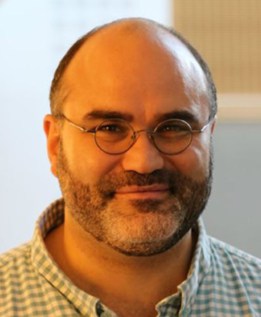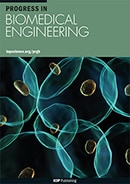Available to watch now, this webinar sponsored by the IOP Publishing journal, Progress in Biomedical Engineering, explores the advances in in silico trials of medical products
Want to learn more on this subject?

In silico trials (ISTs) for medical drugs and devices have gained increased popularity as cost-effective alternatives to their clinical counterparts. ISTs promise dramatic reductions in the resources needed for assessing novel technologies and for generating evidence in support of regulatory evaluation for safety and effectiveness. Some have suggested significant cost reductions comparing an all in silico approach versus an equivalent clinical trial with humans. Others have argued for, and reported on, incremental implementation of the in silico methodologies that complement or refine the design of clinical trials based on predictions from the in silico trial outcomes.
This webinar has been launched in collaboration with a special issue in Progress in Biomedical Engineering, a new high-impact Reviews journal from IOP Publishing. The special issue is still welcoming article proposals from the community, and participants are encouraged to discuss contributions with the guest editors.
Want to learn more on this subject?

Alejandro Frangi, University of Leeds, UK and KU Leuven, Belgium. Alex is Diamond Jubilee chair in computational medicine and Royal Academy of Engineering chair in emerging technologies at the University of Leeds, Leeds, UK, with joint appointments at the School of Computing and the School of Medicine. He directs the CISTIB Center for Computational Imaging and Simulation Technologies in Biomedicine. He is Turing fellow of the Alan Turing Institute. Alex is the scientific director of the Leeds Centre for HealthTech Innovation and director of Research and Innovation of the Leeds Institute for Data Analytics.

Aldo Badano, US FDA, USA. Aldo holds a senior biomedical researcher service appointment at FDA and currently serves as director of the Division of Imaging, Diagnostics, and Software Reliability, OSEL/CDRH. His interests are in the characterization and modeling of medical imaging acquisition and visualization systems. Aldo is a fellow of SPIE, AAPM, and AIMBE.
Panelists
Marc Horner, ANSYS, USA
Marc Horner is a senior principal engineer, leading technical initiatives for the healthcare industry at Ansys. Marc joined Ansys after earning his PhD in chemical engineering from Northwestern University in 2001.
Abhinav Jha, Washington University in St Louis, USA
Abhinav K Jha is an assistant professor of biomedical engineering, radiology, and electrical and systems engineering at Washington University. His research interests are in developing task-specific computational medical imaging solutions.
Rebecca Shipley, UCL, UK
Becky Shipley is professor of healthcare engineering at UCL, and director of the UCL Institute of Healthcare Engineering, which brings together engineers, medical and clinical scientists to develop medical and digital technologies. Her research interests lie in mathematical and computational modelling in medicine and biology with an emphasis on multidisciplinary approaches which integrate data from biological experiments, medical imaging and patients.
Ed Margerrison, US FDA, USA
Ed is the director for the Office of Science and Engineering Laboratories at the Center for Devices and Radiological Health, US FDA. The Office is responsible for providing technical expertise and analyses in support of the regulatory processes within CDRH. In addition, the c300 scientists and engineers engage in representing the Agency on International Standards organizations, provide scientific guidance for policy, and “futureproof” the Center for technologies making their way into novel medical devices.
Puja Myles, MHRA, UK
Puja is director of Clinical Practice Research Datalink (CPRD), a real-world data research service provided by the Medicines and Healthcare products Regulatory Agency (MHRA). Since 2018 she has been working on the development of high-fidelity synthetic data, used to support the regulation of machine learning algorithms in healthcare.
Ehsan Abadi, Duke University, USA
Ehsan Abadi is an imaging scientist at Duke University. His research focus is in quantitative imaging and optimization, CT imaging, lung diseases, computational human modelling, and medical imaging simulation.
Ilse Jonkers, KU Leuven, Belgium
Ilse Jonkers leads research on the quantification of joint loading, using multi-scale modelling-based analysis to understand the effect of pathological movement on cartilage degeneration. She is also the director of iSi Health, the KU Leuven Institute of Physics-based modelling for in silico health.
Blanca Rodriguez, Oxford, UK
Blanca Rodriguez is professor of computational medicine, Wellcome Trust senior research fellow and head of the Computational Biology and Health Informatics Theme at the University of Oxford. Her team develops human-based interdisciplinary methodologies to accelerate medical therapy development, through industry collaborations.
Progress in Biomedical Engineering is a new interdisciplinary journal publishing high-quality authoritative reviews and opinion pieces in the most significant and exciting areas of biomedical engineering research.
Editor-in-chief: Metin Sitti, Max Planck Institute for Intelligent Systems, Stuttgart, Germany




